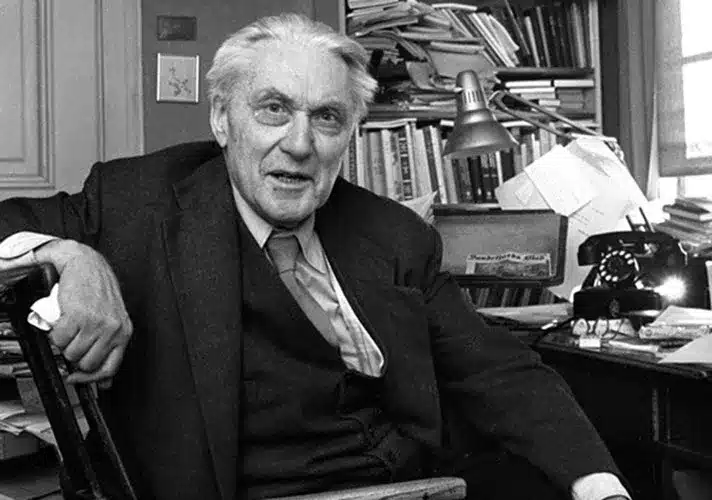[et_pb_section admin_label=”section”]
[et_pb_row admin_label=”row”]
[et_pb_column type=”4_4″][et_pb_text admin_label=”Text”]Ragnar Frisch (3 March 1895 – 31 January 1973) was a Norwegian economist and statistician. He was awarded the Nobel Memorial Prize in Economic Sciences in 1969, along with Dutch economist Jan Tinbergen, for their contributions to the development of econometrics.
Life and Career
Ragnar Frisch was born on 3 March 1895, in Kristiania, Norway. He got his bachelor’s degree in 1919 in economics. In the following year, he passed his handicraftsman tests and joined his dad’s workshop.
In 1921, Frisch got a fellowship from his university that allowed him to study in France and England. After studying economics and mathematics abroad for three years, he returned to Norway.
He published a few papers on probability theory and started teaching at the University of Oslo in 1925. He got his doctorate in mathematical statistics the following year. The lectures he gave on production theory were eventually made into a book in 1965.
In 1926, he wrote his first seminal article, ‘Sur un problem economic pure’. In his opinion, economics should follow the same path toward theoretical and empirical quantification as other sciences. In his opinion, mathematical tools can help you understand economics better.
He went to the United States after receiving a scholarship from the Rockefeller Foundation. He got to know many economists, like Irving Fisher, Allyn Young, and Henry Schultz.
Additionally, he wrote a paper about how investments explain economic fluctuations. His paper was popularized by American economist Wesley Mitchell since he thought it introduced new and advanced methods.
After that, he spent a year updating and financing his family business and looking for someone to run it for him.
Later, in 1928, he got a job at the University of Oslo as an Associate Professor of Statistics and Economics. Frisch became a full professor at the University in 1931 after publishing a number of articles on economic metrology and statistics.
Major Work
He introduced the famous Frisch-Waugh theorem with Frederick Waugh. This theorem says that ordinary least squares are equivalent to projection matrices when determining the coefficients of a regression model.
He wrote a lot of important articles in his lifetime, including ‘The Relationship between Primary Investment and Reinvestment’ (1927), ‘The Theory of Production’ (1965), and ‘Econometrics in the World of Today’ (1970).
Frisch was also interested in the broader social implications of economic research, and he advocated for the use of economics to improve living conditions for people around the world.
He was a strong believer in the power of education to promote economic development, and he worked to promote education and research in economics both in Norway and internationally.
He died on 31 January 1973, in Oslo, Norway.
Award
He was awarded the Nobel Memorial Prize in Economic Sciences in 1969, along with Dutch economist Jan Tinbergen, for their contributions to the development of econometrics.[/et_pb_text][/et_pb_column]
[/et_pb_row]
[/et_pb_section]

